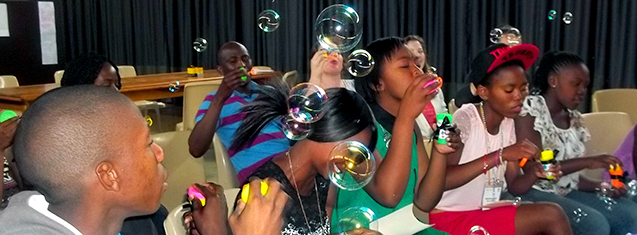Latest News Archive
Please select Category, Year, and then Month to display items
08 April 2021
|
Story Thabo Kessah
|
Photo UFS Photo Archive
 Dr KPD Maphalla with former UFS Chancellor, Dr Franklin Sonn, during the graduations in April 2007.
Dr KPD Maphalla with former UFS Chancellor, Dr Franklin Sonn, during the graduations in April 2007.
The University of the Free State is sad to learn of the passing of alumnus and award-winning Sesotho literary giant, Dr KPD Maphalla.
The literary works of Dr Khotso Pieter David Maphalla, like many other African writers and artists, were influenced and characterised by his own era of powerful forms of oppression and exclusion from dominant literary discourses. In his own right and through his writings of poetry, novels, short stories, and kodiamalla (dirge), he articulated a deliberate political and social protest and pushed for a place for African languages in literature at the height of apartheid.
“He entered the professional scene with his ground-breaking novel, Kabelwamanong, in 1982 at the age of 27. His career actually started in 1971 while he was still at school. Since his first novel, he has produced at least two books annually, covering the genres of poetry, novels, dramas, and short stories. As a dramatist, Dr Maphalla has written a number of excellent and educative radio dramas for the then Radio Sesotho (now Lesedi FM),” said his long-time friend and Head: African Languages at the University of the Free State, Dr Nyefolo Malete.
“It was for this writing prowess that he received recognition from the UFS when he was awarded an Honorary Doctorate in Literature by the Department of African Languages during a momentous ceremony on the Qwaqwa Campus in 2007,” added Dr Malete.
Dr Malete also revealed that, despite losing the use of his right hand after suffering a stroke following a car accident in the late 1990s, Dr Maphalla continued writing using his left hand. “He was adamant that, what he referred to as his ‘supposed disability’, would not deter his passion for writing.”
Dr Maphalla’s work has also produced numerous scholarly studies by the likes of Profs Moleleki Moleleki (protest poetry), Thapelo Selepe (lament and protest poetry), and Dr Seema Seema (process of cross-cultural communication). He was a committed Qwaqwa community member, who was also instrumental in the founding of Qwaqwa Community Radio (2000) and Metjodi Writers (2006), among others. He has written more than 70 books, many of which have been prescribed texts in schools.
Some of the awards he has won include:
South African Centre for Digital Language Resource (SADiLar) Sesotho Lexicographic Unit (Sesiu sa Sesotho) Lifetime Award for outstanding literary works and for promoting Sesotho literature (2019).
The Literature Festival and the University of the Free State Award for enormous contribution to Sesotho literature by a South African writer (2019).
Lifetime Achiever Award in Literature awarded by the Department of Arts and Culture (2005).
M-Net Book Prize for Sesotho poetry (2005). The first and thus far the only Sesotho author to have received this honour.
M-Net Book Prize for best novel (1996).
De Jager-HAUM Literary Award for his volume of short stories, Mohlomong Hosane (1993).
Thomas Mofolo Trophy for Best Novel, Best Poetry, and the Overall Award (1992).
Thomas Mofolo Trophy for Best Poetry (1991).
Dr JJ Moiloa Floating Trophy for Best Sesotho Poetry Book of the Year, Kgapa tsa ka (1985).
Digital Storytelling empowers and liberates students
2014-10-17

In January 2014, Jode Brexa, an American Fulbright scholar, came to our university and moved into the guest room at Welwitschia residence.
It so happened that Brexa and Elize Rall, residence head of Welwitschia – better known as Wel-Wel – started talking about digital storytelling. Brexa’s Digital Storytelling project captured Rall’s imagination. Shortly thereafter, Brexa convinced the RC members of Wel-Wel to participate in the project.
Digital storytelling is, on the most basic level, the use of computer-based resources to tell stories. The idea is to combine the art of storytelling with multimedia – including graphics, photos, text, audio, image and/or music.
The Wel-Wel students were taught storytelling skills and each student’s unique story was recorded and edited. It was so successful that they then showed their stories to the Rector and Dean of Students. Brexa will now – with their permission – take their stories to America with her, where she will share it with her community.
During the weekend of 10–12 October 2014, the RC of Wel-Wel introduced 12 learners, who are currently in Grade 10 at the Christiaan Liphoko School, to the project. The learners stayed in the gazellie for the weekend and, in the course of a few days, learned how much power is locked up in their personal stories. They learned that everyone’s story has the power to inspire and empower.
Wel-Wel has been involved in various outreach projects to the community. However, this was the first time that Wel-Wel literally brought the community to their doorstep. This is also not a charitable project. It is uplifted students reaching out to the youth to empower them in order to empower others in turn.
Meanwhile, Brexa also linked the project to the university’s Schools Partnership Project. The programme works through mentorship programmes to uplift previously disadvantaged schools. Hands were also taken with Columba Leadership NGO – financed by Old Mutual.